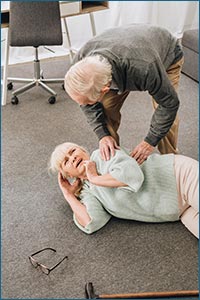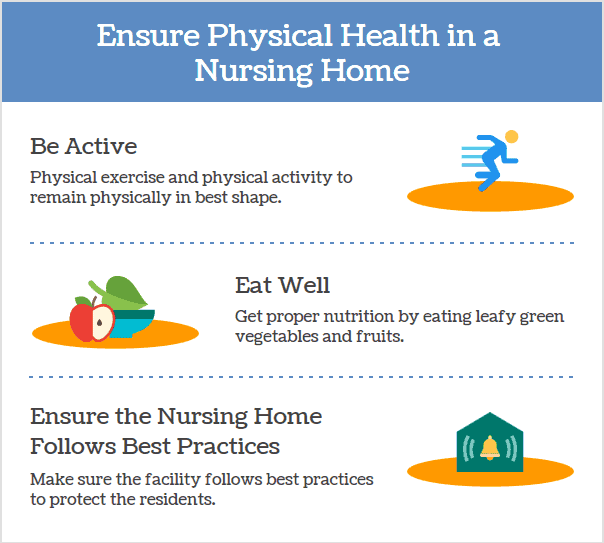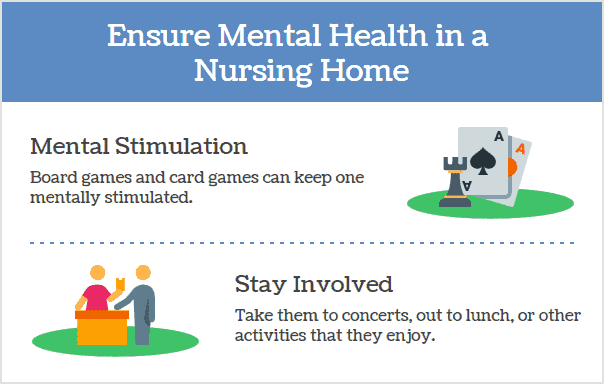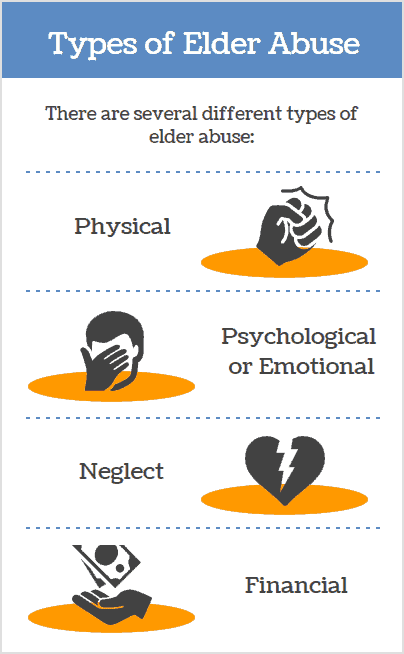Table of Contents
One of the fastest growing industries currently is elder care. As more of our population ages, the number of people who use nursing home facilities is increasing. When considering a nursing home for you or a loved one, there are several steps to take in order to ensure the nursing home is safe and the best fit for you or your loved one’s lifestyle.
When Should You or Your Loved One Move into a Nursing Home?
It can be a difficult decision to move yourself or a loved one into a nursing home. Some people see it as a loss of freedom or lack of adequate support, but the reality could not be farther from the truth. Nursing homes provide an environment where the resident can be more adequately taken care of and their needs are met. A nursing home, or assisted living facility, should be considered if you or a loved one answer yes to the following criteria:
- Are falls occurring frequently?
- If you or a loved on has home care assistance, is it more prudent financially to move to an assisted care facility?
- Is hygiene, eating, and dressing being maintained appropriately?
- In the event of a fire or other emergency, are you or your loved one able to evacuate independently?
- Have there been any issues with taking the appropriate medicine and dosage?
If you are answering yes to some of these questions, it might be a good idea to begin to look into nursing homes. Even if you or your loved one does not feel it is necessary at this time, it is also a good idea to look into the facilities for the future. It is better to evaluate the facilities with a clear head than wait for an emergency situation.
Choosing the Best Nursing Home
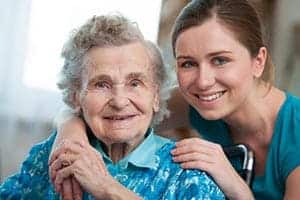
The next step is visiting the facilities. This is a crucial step because the potential resident needs to get a feel for the facility and determine whether or not the facility is safe and aligns with their lifestyle.
When visiting nursing homes, have a checklist of questions to ask and make sure those questions are answered during the visit. It is also helpful to actually write down the answers during the visit so the answers can later be reviewed and compared. Immediately after visiting, write down any impressions and thoughts about the facility.
Questions to Ask When Choosing a Nursing Home
Questions for Administrators or Directors
- Is the nursing home Medicaid or Medicare certified?
- Is the facility equipped to help those with dementia, Parkinson’s, etc.
- What measures are in place to prevent falls, how often do they occur, and what protocol is in place when a fall does occur?
- Are doctor and dentist services on site?
- What kind of background checks are done for the staff? What is the staff/resident ratio? What type of training is done when staff is hired?
- Does every room have a window?
- Are bed checks done nightly?
- Are mealtimes scheduled or flexible? What snacks are provided throughout the day?
- How often is the meal schedule rotated?
- Is there a waiting list? If so, how long is the list?
- If you have any special medical, religious, or dietary needs, ask if they can be accommodated.
Questions to Ask the Staff
- Do you work a lot of overtime and double shifts?
- How many residents do you care for? Is that too many residents?
- About how much time do you spend with each resident?
- Do you like working with elderly? Is this a good place to work?
Questions to Ask the Residents
- Do you enjoy staying here? What daily activities do you participate in?
- What is your favorite meal and how often is it served?
- Do you have friends here?
- How do you spend your afternoons? Weekends?
- Do you like the nurses and staff?
Additionally, when visiting, make sure to take notes on various aspects, such as:
- Is the facility clean?
- Are residents in hospital gowns or their own clothes? Are they well groomed?
- Are there handrails throughout the home? Are all areas wheelchair accessible?
- Is this facility’s location convenient for family and friends to visit? What are the visiting times?
Ensuring your Loved One is Happy, Healthy, and Safe in a Nursing Home
As one ages, it becomes increasingly important to ensure you or your loved one is leading a happy, healthy, and fulfilling life. There are many ways to ensure physical and mental health and safety. Below are some ideas:
Physical Health
Be Active
Physical exercise and physical activity are one of the most highly recommended things for people to do in order to remain mentally and physically in their best shape. The CDC recommends 30 minutes a day of activity. Some activities for aging people could include 30-minute walks in the morning or evening, tai chi, dancing, shuffleboard, or even Wii sports can satisfy this 30-minute recommendation. Focus on balance, endurance, and strength.
Eat Well
As some people age, they stop eating healthy and begin to only what tastes good. While this may satiate short-term enjoyment, it is just as important, if not more to get proper nutrition as one ages. Eat leafy greens such as kale which can help with eyesight, or spinach which contains potassium that helps with muscle function and blood pressure. Eat oranges, apples, bell peppers and carrots for vitamin C which helps keep the immune system strong.
Ensure the Nursing Home Follows Best Practices
Make sure the facility follows best practices which helps to protect the health of the residents. This can include actions such as identifying residents who are more at risk of falling, safety rounds to check on residents, and bed alarms.
Mental Health
Mental Stimulation
Board games and card games can keep one mentally stimulated and can help stave off some cognitive illnesses. Additionally, things such as sudoku, crossword puzzles, learning a language are known to help maintain cognitive function. Finally, many states have programs for senior citizens so they can enroll in classes for little to no charge.
Stay Involved
Friends and family of nursing home residents can take them to concerts, out to lunch, or other activities that they enjoy. Participate in nursing home outings for the residents such as trips to the zoo or another city. Take up a hobby you have wanted to try. Some popular ideas include meditation, painting, writing, reading or learning an instrument. Another rewarding activity could be writing down your life history as well as your family history, so the next generation does not lose that history.
Elder Abuse and Common Signs
Unfortunately, even if every precaution is taken, there are instances of elder abuse that could occur. One must be vigilant to the state of their loved ones in nursing homes. There are several different types of abuse:
Physical
This type of abuse occurs when someone in the facility or another resident physically causing someone harm. This can include assault, battery, or sexual abuse. Physical signs of this include bruises, cuts, welts, or broken bones. Additionally, changes in a person’s demeanor, attitude, and personality could all be signs to look for any physical signs of abuse.
Psychological or Emotional
Psychological or emotional abuse occurs when a person at the facility is causing mental anguish for the resident. Examples of this type of abuse include yelling at the resident and criticizing them. Signs can include drastic changes in behavior and the unwillingness of the resident to talk or ask for something in the presence of the abuser or staff.
Neglect

Financial
Finally, financial abuse can occur and is notoriously prevalent in elderly people. This happens when a person’s money or property is being taken from them. Examples of this are taking property or money from the resident, sudden changes in who has access to their financial information, or the resident being charged for various things no reason. This type of abuse can be prevented by having a system in place where those who are financially responsible and close to the resident help with finances.
What Can You Do if You Suspect Elder Abuse or Negligence?
Unfortunately, according to the Government Accountability Office that oversees nursing home and assisted living facility complaints, from 2005 to 2014 the number of nursing home complaints have increased. This unfortunately indicates the quality of nursing home facilities has decreased. Take steps to not only recognize but also avoid or stop any elder abuse.
Report Suspected Abuse
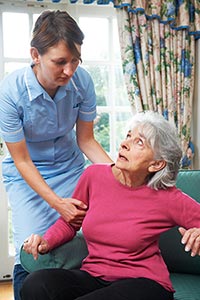
Otherwise, to report the abuse, click here to check visit the National Center on Elder Abuse where you will be able to select the state the abuse is occurring in, and locate which agency is the appropriate reporting agency.
This site will give you contact numbers for you to report and some states require a physical form be filled out. Whether you report over the phone or by form, gather the following information:
- Name and age of the person who is being abused
- Any signs or symptoms of the abuse you noted
- The facility’s name and address
- What happened, what injuries were sustained, when did it occur, and who was involved
- Who witnessed the incident?
When describing the incident, stick to facts. While it can be upsetting knowing a person is being mistreated, being accurate with what happened and relaying what occurred in a civilized manner is important.
Have Your Loved One Moved to Another Facility
Moving from one facility to another can be difficult if the resident has made friends and is accustomed to the facility. However, if any sort of abuse is suspected, it is important to remove the resident from the situation for their own safety.
Contact a Lawyer
Finally, if a loved one has suffered injuries, gone to the hospital, or passed away as a result of such conduct, contacting a good nursing home abuse lawyer will help. Lawyers often will do an initial consultation for free to determine if there is a case. If they deem that the case should be looked into, they will often work on a contingency basis which means they will not get any money unless you get paid. Dealing with elderly neglect and abuse can be mentally and emotionally draining. Obtaining a lawyer can help remove some of the burden and can help ensure the best possible outcome.


